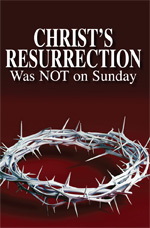
Home
Contact Us
Go to library
- Bible Prophecy,
- Conversion,
- Health and Healing,
- Holy Days,
- Laws of God,
- Man’s Holidays,
- Marriage and Childrearing,
- Other Doctrines,
- Politics & Military Service,
- Salvation and the Afterlife,
- The Plan of God,
- The Sabbath,
- The True Church,
- Tithing & Finance,
- Tools of Growth,
- Miscellaneous,
- See all
- A Look Inside the Church,
- Who Is David C. Pack?,
- Who Was Herbert W. Armstrong?,
- World Headquarters Campus,
- Feast of Tabernacles,
- Ambassador Center,
- Ambassador Youth Camp,
- Behind the Work,
- The Apostasy and Splinters,
- Donation Information,
- Privacy Policy,
- Holy Day Calendar,
- Press Resources,
- Contact Us


